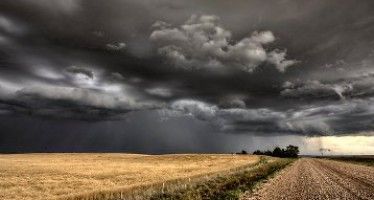CA strikes blow for privacy rights
By Joseph Perkins
Randi Zuckerberg made news recently when a family photo she posted on her Facebook account was reposted on Twitter without her knowledge or consent.
The big sis of Facebook CEO Mark Zuckerberg was not amused. “Digital etiquette: always ask permission before posting a friend’s photo publicly,” she admonished the culprit who trampled upon her privacy.
This is the brave new world of social media. While it offers tremendous utility to the hundreds of millions of us who have Facebook, Twitter, LinkedIn, Pinterest and other such accounts, it also poses a clear and present threat to our privacy rights.
That’s why those of us here in the Golden State who routinely use social media owe a debt of gratitude to state Sen. Leland Yee, D-San Francisco, and Assemblywoman Nora Campos, D-San Jose. Both are authors of legislation, which took effect New Year’s Day, that provide new privacy protections for selected social media users.
Yee’s measure, SB 1349, prohibits California colleges and universities from requiring students, or prospective students, to disclose, divulge or otherwise provide access to their personal social media.
That not only includes electronic content appearing on a student’s Facebook, Twitter or other such account. But also blogs, podcasts, emails and instant and text messages that are accessible on the Internet.
Campos’ measure, AB 1844, makes it unlawful for employers to require employees or job applicants to disclose the user name and password to their personal social media accounts. And, like Yee’s legislation, it’s inclusive of all forms of electronic content.
There are some who suggest that the measures by Yee and Campos address problems that do not as yet exist.
Indeed, the assemblywoman acknowledged that very well may be the case with her legislation, which she described as a “preemptive measure.” And the same may equally apply to the senator’s measure.
Privacy under attack
But what is beyond dispute is that the privacy of our personal information, on- and offline, is under attack like never before.
Not only by colleges and employers seeking to snoop into the private lives of students and workers, but by every conceivable information-gathering beast individuals encounter in their day to day lives.
Indeed, why did Williams-Sonoma and other California retailers until recently require customers to provide zip codes when making purchases with a credit card?
Why does California-based 24 Hour Fitness require biometric scans of members before they work out?
And why does Pacific Gas & Electric Co. electronically swipe the driver’s licenses of all visitors to its main office?
If retailers, health clubs, utilities and others that gather personal information guaranteed that the info would never, ever be used for purposes never imagined by those who provide their zip codes, biometrics and driver licenses, if they could assure those whose personal information is stored in their data bases that it will never fall into the wrong hands, there would be no need for new laws protecting privacy.
But we have seen all too many cases in which personal information gathered for one specific purpose is used for an entirely different purpose. As in the shocking 1989 murder of actress Rebecca Schaeffer by a stalker who obtained her home address from California DMV.
And we also have seen far too many instances in which supposedly “secure” data bases have been penetrated by hackers. Like the data base maintained by Barnes & Noble, which was infiltrated this past September by cybercriminals who made off with credit card numbers of the bookstore’s in San Diego and several other cities.
Once the personal information of students, employees, consumers or social media users like Randi Zuckerberg is out in the open, there’s really no repairing the damage done.
That’s why Sen. Yee, Assemblywoman Campos and their fellow lawmakers serve the public interest by passing laws that address the growing threats to privacy rights.
Related Articles
Post-Vergara: Civil war possible among CA Dems
The Vergara storm is coming, and I’ve got a feeling that it’s going to be gigantic. The ruling’s potential impact
CARB's leadership fetish
JUNE 3, 2010 The word is “leadership.” These days, it’s hard to find a news article or press release about
No sex at Fort Ross
JULY 7, 2010 The problem is that there’s no sex in this story. It’s got just about everything else –




